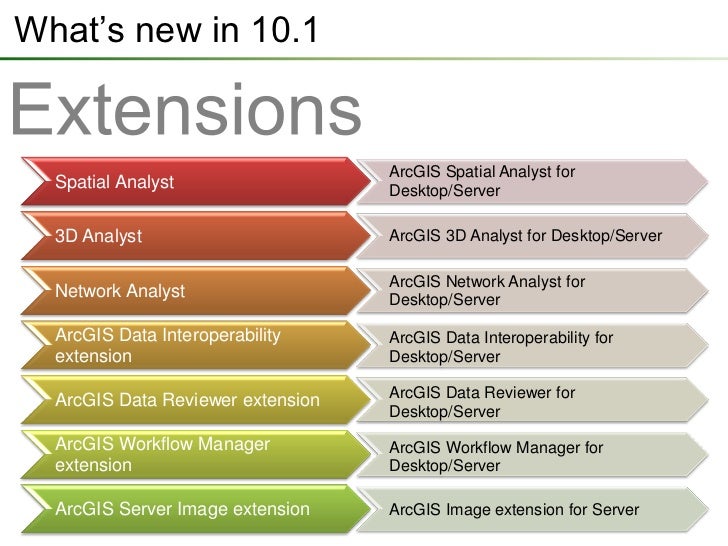Learn about the ArcGIS Data Interoperability extension in ArcGIS Pro 2.3. Connect, transform and automate your data formats, feeds and connections. Latest version of ArcGIS Desktop core installation file. Request single use license(s) here. (Harvard Key required). A) For the “Software Produce which you need a license for” choose the top selection: “ArcGIS Desktop Advanced (ArcMap) 10.8+ Core & Extensions”. Record the license code given to you. You’ll need it later.
Available with Data Interoperability license.

The ArcGIS Data Interoperability extension for Desktop is an integrated spatial ETL (extract, transform, and load) toolset that runs within the geoprocessing framework using Safe Software's FME technology. It enables you to integrate data from multiple sources and formats, use that data with geoprocessing tools, and publish it with ArcGIS Server.
ArcGIS Desktop
The Data Interoperability extension for ArcGIS Desktop is offered at two licensing levels:
Installing Data Interoperability gives you immediate access to WFS and GML-SF (simple features) datasets. You can create interoperability connections for WFS and GML-SF data, add them to maps, and use them with geoprocessing tools. You can also use conversion tools in the Data Interoperability toolbox to read WFS services and read and write GML-SF datasets.
Authorizing Data Interoperability with a valid license and enabling it in the ArcGIS Desktop application adds additional out-of-the-box support for over 100 GIS, CAD, raster, and database formats, and grants you access to the FME Workbench application.
Capabilities
| Capability | Description |
|---|---|
| Direct read | Direct-read formats are used directly from the Catalog tree as read-only datasets. When you add them to ArcMap, ArcScene, or ArcGlobe, all standard map functions are enabled, including attribute tables and labeling functions. |
| Interoperability connections | An interoperability connection is a user-created link to one or more data sources that is managed in the Catalog tree as a single direct-read dataset. The connection specifies the data source and the FME reader and any parameters supported by the chosen format. |
| Data Interoperability toolbox | The Data Interoperability toolbox contains out-of-the-box geoprocessing conversion tools that import and export data between geodatabase and nonnative formats using FME readers and writers. |
| Spatial ETL tools | Spatial ETL tools are user-created geoprocessing tools that can transform data between different data models and different file formats. You create them with FME Workbench in a translation workspace and save them in a toolbox. |
| Custom formats | A custom format is a translation workspace that is exported from FME Workbench as a format and utilized in the FME reader gallery. It is saved to an external .fds file and can be imported to reader galleries on other desktops. |
ArcGIS Server
The Data Interoperability extension for ArcGIS Server enables you to publish map services that contain interoperability data formats and publish Data Interoperability tools you have authored in ArcGIS Desktop as geoprocessing services.
ArcGIS Engine for Windows
Arcgis Extensions Free
The Data Interoperability extension for ArcGIS Engine for Windows enables developers to embed the extension's tools (Quick Import, Quick Export, Spatial ETL) in custom desktop applications.
Arcgis Pro Extension

Arcgis Data Interoperability Extension
Related topics
